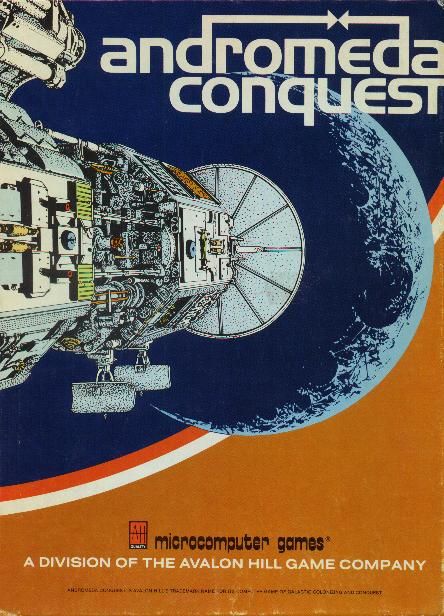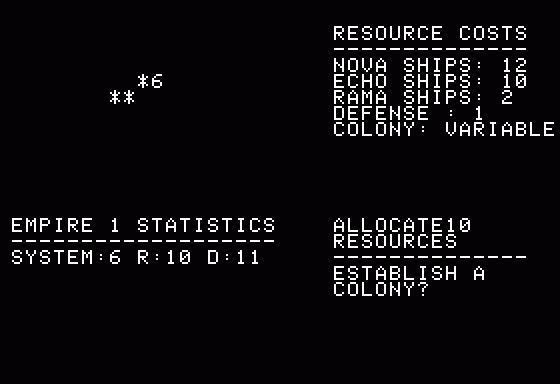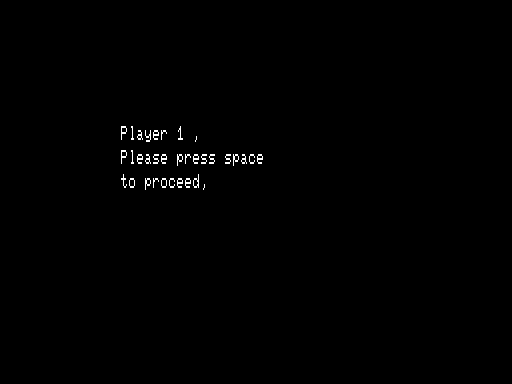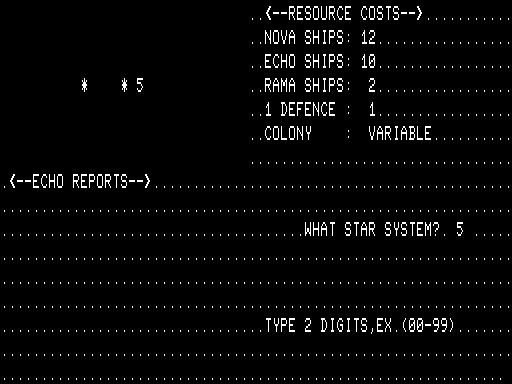Retro Replay Review
Gameplay
Andromeda Conquest’s core gameplay revolves around turn-based strategy and resource management, challenging up to four players to expand their galactic empire across 12 to 48 star systems. Each turn begins with the automatic allocation of resources from all your colonies—minerals, energy, and credits—which must be spent or risked being lost. This mechanic forces you to plan every move meticulously, prioritizing expansion, defense, or research before the next turn starts.
(HEY YOU!! We hope you enjoy! We try not to run ads. So basically, this is a very expensive hobby running this site. Please consider joining us for updates, forums, and more. Network w/ us to make some cash or friends while retro gaming, and you can win some free retro games for posting. Okay, carry on 👍)
The grid-based layout is central to strategic depth. Movement and placement of ships and colonies happen on a squared map, where each coordinate matters. The included pad of graph paper, while originally designed for pen-and-paper sessions, translates surprisingly well into the digital version as an overlay tool that helps you track fleet formations and resource nodes with precision. This tactile element adds a nostalgic yet practical layer to the interface.
Combat and diplomacy interplay smoothly throughout the game. Engaging enemy fleets requires balancing offensive firepower against defensive shields, while negotiating pacts or ceasefires can buy crucial breathing room. The simultaneous planning phases—where orders are input simultaneously then resolved—keep tension high, as you never know if your rival is gearing up for peace talks or a full-scale invasion.
Graphics
Visually, Andromeda Conquest opts for a clean, functional aesthetic rather than a cinematic spectacle. Star systems are represented by glowing nodes connected by faint grid lines, and ships are depicted as simple yet distinctive icons. This minimalistic approach ensures clarity at all zoom levels, which is vital when you’re juggling dozens of colonies and fleets across the map.
Special effects during battles—laser beams, shield flares, and explosion animations—are modest but effective, serving more to inform than to wow. While some modern strategy titles push photorealism, Andromeda Conquest’s graphics prioritize readability. You always know which vessels have suffered hull breaches or energy losses at a glance, and color-coded status bars keep you aware of each colony’s production levels.
The user interface is sleek and unobtrusive, with resource counters and action menus neatly tucked into side panels. Pop-up tooltips provide quick access to ship stats, colony upgrades, and diplomatic options without breaking immersion. Even if you’ve never touched a graph-paper pad in your life, the digital tutorial walks you through using the integrated mapping tool for perfect colony placement and fleet coordination.
Story
Unlike narrative-driven RPGs, Andromeda Conquest’s story emerges organically from player interactions. There’s no linear campaign or cutscene sequence—your tale is written with every alliance forged, every star system conquered, and every back-room betrayal. For players who relish creating their own epic sagas, this open-ended approach is a welcome departure from rigid plotlines.
The game’s lore is conveyed through a concise codex, which details the history of the galaxy, the unique traits of each alien faction, and the political tensions simmering at turn zero. You learn of the legendary House Vorax and the pacifist Syndicate of Tycho, but how those legends intertwine is entirely up to you. This sandbox style encourages role-playing: will you lead a noble federation or become a ruthless warlord?
Dynamic events—such as random asteroid strikes, mysterious alien artifacts, or sudden warp storms—inject narrative twists into every campaign. While these occurrences are brief, they can dramatically alter the balance of power, forcing even veteran players to adapt their strategies. As a result, each playthrough feels unique, with emergent story beats that outshine many static single-player plots.
Overall Experience
Andromeda Conquest stands out as a deeply strategic experience that rewards careful planning and bold decision-making. The pressure of “use-it-or-lose-it” resource turns keeps every moment engaging, and the grid-based galaxy ensures that spatial tactics are always at the forefront. Whether you’re expanding your borders or rushing to reinforce a vulnerable colony, the tension never lets up.
The blend of analogue charm—courtesy of the graph-paper pad—and digital convenience hits a sweet spot for strategy enthusiasts. Even if you’ve never played a board-game-inspired video title, the intuitive controls and clear visuals make the transition seamless. Multiplayer matches are especially memorable, with alliances shifting like sand and last-minute gambits turning the tide of war.
For buyers seeking a cerebral challenge rather than flashy spectacle, Andromeda Conquest delivers in spades. It may not dazzle with blockbuster graphics or an orchestrated storyline, but its elegant design and emergent narrative create an experience that keeps you coming back. Galactic domination awaits—for those willing to think several turns ahead.
 Retro Replay Retro Replay gaming reviews, news, emulation, geek stuff and more!
Retro Replay Retro Replay gaming reviews, news, emulation, geek stuff and more!









Reviews
There are no reviews yet.